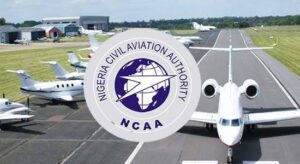


Travel industry to lose 15bn daily amid protests — Wakanow CEO
In light of the ongoing nationwide protest, the Group CEO (GCEO) of Wakanow, Bayo Adedeji has made a projection that protest could cost the Nigerian travel industry up to ¦ 15 billion in daily transactions.
Adedeji spoke on Thursday when he appearsd on Channels Television.
Speaking, Adedeji emphasized that the impact on cancellations could be significant if all airlines are unable to operate during the protest.
“We are concerned about airline cancellations. The impact on the industry and economy is big. If all airlines cancel flights, think about the financial losses.”
Speaking further, he added that, “Some international airlines have quotas. If the protest causes you to miss or cancel your flight, you will pay cancellation fees. We are working on this.”
Regarding projected financial losses, he said, “To my industry, we have a daily rate of ¦ 4-5 billion for agencies. For the aviation industry, a delayed sale of about ¦ 10 to ¦ 15 billion daily means transactions worth ¦ 15 billion will not be used or consumed as services paid for.”
“So, the ¦ 15 billion transaction dominos to the next day. It is a real loss. In retail, a sale that does not happen is a loss, so it affects both the service provider and consumer.”
Addressing the halted 800% hike in aircraft navigation fees by the Nigerian Airspace Management Agency, Adedeji advised fixing fundamentals.
He argued that the cost of running the airspace will be transferred to consumers.
“Let us assume in good faith that the price increase in NAMA is to cover operational costs like they said, and they cite diesel.”
“NAMA is running on diesel, and these are some fundamental issues causing economic turmoil. When operational costs rise, airlines push them to consumers who are poorer than last year.”
“The dollar was ¦ 741 last year and is ¦ 1,611 today. Considering these factors, airlines pass the costs down to consumers, creating a vicious cycle of poverty. We should focus on fixing these fundamental issues.” He lamented.
He noted further that a 35% decline in passenger numbers compared to last year due to economic hardship and increased airfares.
London-Lagos tickets have risen by 103%, contributing significantly to the decline in passenger numbers compared to the previous year. “We still see prices surging despite the increment call-off.
Domestic flights are also surging, and aviation fuel is expensive.” “As we continue to operate in a dollar-denominated economy, many purchases are made in dollars, increasing overall costs.”
The movement of USD affects our daily lives. The average price of many tickets has increased by 103% from last year and by 11% from last month.
We are paying double in naira terms compared to last year, but in dollar terms, it is relative because the dollar is up 139%. We can reduce our costs if we move from a dollar-based to a local currency economy. If local production supplies our aviation fuel in naira, we can reduce our dependence on USD.” Nigerian travel industry.


